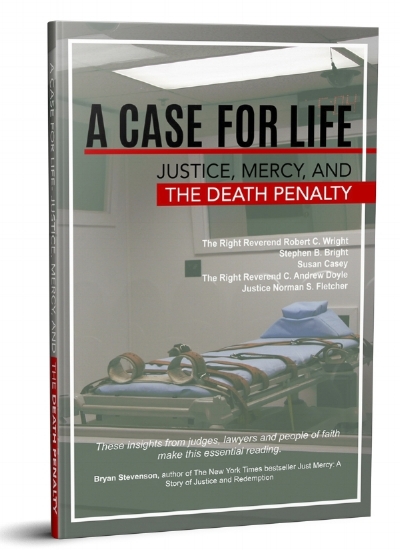







We must ask ourselves to do what is right even when it is difficult. On February 15, Bishop Wright joined special guests – among them faith leaders, lawyers, and a retired Georgia Supreme Court justice – for a discussion on the death penalty in our country.
During this discussion, Sister Helen Prejean, a Catholic nun from Louisiana provided her perspective from the front lines advocating for the abolition of the death penalty since 1981. She shared how seeing her first execution, “set her soul on fire, a fire that burns in me still.” The author of the international best-selling book, Dead Man Walking: An Eyewitness Account of the Death Penalty, also spoke about her privilege growing up in this country and the need to wake up to injustice.
The Most Reverend Wilton D. Gregory, archbishop, Roman Catholic Archdiocese of Atlanta, also spoke on how Catholics are opposing the death penalty. “Once you begin to justify the taking of a human life, you really are on a slippery slope,” he said.

From left to right: Justice Norman Fletcher, Susan Casey, Sister Helen Prejean, and The Most Rev. Wilton D. Gregory
During the discussion, Susan Casey, appeals attorney for Kelly Gissendaner and Justice Norman S. Fletcher, retired chief justice, Supreme Court of Georgia discussed their very different roles in the Gissendaner case. Casey was her defense attorney, and Justice Fletcher was on the state Supreme Court when it unanimously upheld her conviction. Gissendaner’s execution was controversial for many reasons, particularly becasue she commissioned the crime, but did not do the act. While in prison, Gissendaner sought rehabilitation and converted to Christianity and even earned a theology degree. While the death penalty is supposed to be reserved for the “worst of the worst” says Justice Fletcher, most times sentences are handed down unfairly.
When the US Supreme Court reinstated the death penalty in 1976, after a four-year pause, it tried to raise the bar for which crimes would qualify as being eligible for the death penalty. The intent was to reserve it only for “the most heinous” crimes, with fewer people being considered for execution. Fletcher says the issue of these protections is that they offer a false sense of fairness and aren’t applied consistently.
This forum was followed by a reception and book signing of A Case for Life: Justice, Mercy, and the Death Penalty by some of the book’s authors.

Justice Norman Fletcher and Susan Casey
Watch the video recording of the panel discussion and Q&A below.
A Case for Life: Justice, Mercy, and the Death Penalty
Within the new book five authors make compelling arguments against the death penalty from their own perspectives. Their personal experiences with both victims and perpetrators provide a moral case for ending state-sponsored killing.
The book’s contributors:
- The Rt.Rev. Robert Wright, Bishop of the Episcopal Diocese of Atlanta
- Stephen B. Bright, Attorney at Law, Southern Center for Human Rights
- Susan Casey, Attorney at Law, Appeals Attorney for Kelly Gissendaner
- The Rt. Rev. C. Andrew Doyle, Bishop of the Episcopal Diocese of Texas
-
Justice Norman S. Fletcher, Retired Chief Justice, Supreme Court of Georgia
Purchase Online or at the Cathedral Bookstore (directions).

